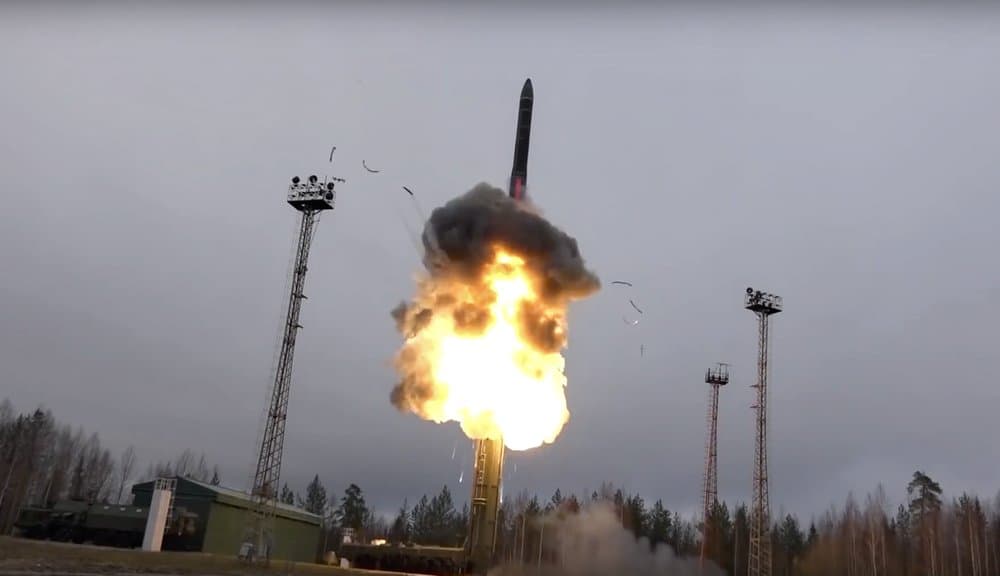SOUTH BEND, Indiana— Catholic and Evangelical leaders are banding together to save the nuclear weapons treaty that bars escalation between Russia and the United States, before the agreement expires early next year.
The New Strategic Arms Reduction Treaty (START) limits the number of nuclear weapons each superpower can have ready to use, but its ten-year existence comes to an end in February 2021 unless both sides renew it, something which the Trump administration has expressed a hesitancy to do.
Russian President Vladimir Putin has welcomed a five-year extension of the agreement, which was provided for in the original treaty, but President Trump is not so keen, saying he wants a deal that includes China and stops Russia from multiplying its nuclear reserves.
Russia recently proposed a one-year pact that would halt the stockpiling of reserve weapons, but U.S. officials have yet to respond.
Catholic and Evangelical leaders are decrying the Trump administration’s reluctance to reach an agreement, and see the treaty as an important step towards disarmament. While the treaty does not disarm either nation, it does allow for a country to inspect the other’s arsenal, and keeps the number of active weapons to far below Cold War levels.
The Catholic Church’s stance against nuclear weapons was recently restated by Pope Francis in his encyclical Fratelli Tutti, which called out “the inadequacy of nuclear deterrence as an effective response” to conflict.
Similar arguments against nuclear weapons were made at a virtual panel of faith leaders on Oct. 21, hosted by the University of Notre Dame’s Kroc Institute for International Peace Studies.
Former U.S. Senator Sam Nunn of Georgia, who sponsored landmark disarmament legislation as chair of the Armed Services Committee, advocated for the five-year extension of the START Treaty.
“As I view it, we are in a race between cooperation and catastrophe, and God’s universe is at stake,” he said.
While he noted that Russia and the United States control roughly 90 percent of the world’s nuclear weapons, the senator called for the other nuclear-capable countries to act with concern for the human race.
“All of us are stewards for all of humanity in our responsibility for our nuclear inventories,” said Nunn, who served as a Democrat.
Nunn also urged attendees to view nuclear disarmament as not just a Cold War issue. The rise in cybersecurity threats across the globe, combined with the fact that many of the world’s nuclear weapons are on ‘high alert’ at any given moment, makes the chance of “nuclear war by blunder” more likely, Nunn said.
“We’re in a new era of technology. We must begin to make technology work to reduce, not increase risk,” he added.
Walter Kim, president of the National Association of Evangelicals, spoke about the history of Evangelical Christians fighting for nuclear disarmament, beginning in the 1940s.
Kim acknowledged that Evangelicals harbor a variety of beliefs about the ethics of war and pacifism, but the Virginia pastor said all Christians can agree on the importance of human life.
“Many Evangelicals believe that armed conflict may at times be necessary to defend life,” Kim said, “but there’s a growing consensus that nuclear warfare… presents a categorically different threat, orders of magnitude greater than conventional arms.”
“An unrestrained global nuclear exchange has the capacity of destroying virtually all life on Earth, and this is profoundly contrary to this notion of God’s total control,” he added.
Representing the Catholic Church was Lucas Koach, director of the Office of International Justice and Peace at the U.S. Conference of Catholic Bishops, who offered an overview of teaching by the American bishops on nuclear ethics.
Starting in the 1990s, that teaching moved from a restrictive approach to nuclear weapons to one that called for their abolition, not as an ideal but a policy goal. Koach said the Bishops’ Conference has continued that message today by consistently advocating for the extension of the New START Treaty, including their request for Congress to adopt it as part of the National Defense Authorization Act.
In a nod to the country’s upcoming election, Koach reminded participants that the Catholic Church views nuclear disarmament as an issue voters should discern when selecting a candidate.
“The Church continues to call the faithful and those of goodwill to pray for peace and advocate for nuclear disarmament, specifically the renewal of New START,” he said.















